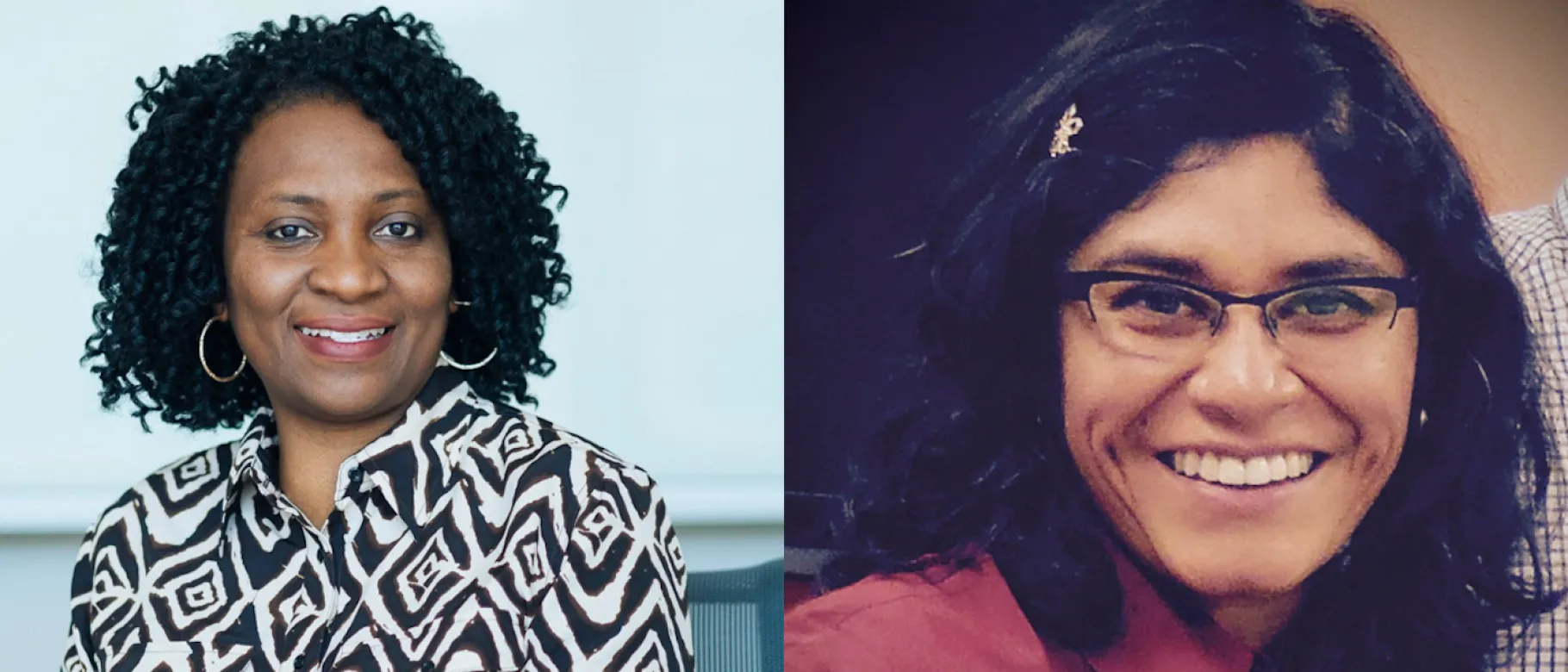Faculty and alum from the Graduate Programs in Public Health present at a national conference

Titilola Balogun, M.B.B.S., M.P.H., Dr.P.H., assistant director for Public Health Practice in the Graduate Programs in Public Health (GPPH), Arduizur Carli Richie-Zavaleta, Dr.P.H., M.A.S.P., M.A.I.P.S., adjunct faculty member in GPPH, and GPPH Alum Sean Walley (M.P.H., ’20) made presentations at the 2021 American Public Health Association conference, which was held over four days, Oct. 22-27, in Denver, Colorado.
Balogun and Richie-Zavaleta presented a paper titled, “Overseeing virtual applied practice experience projects: A new normal for public health agencies?” Based on the wealth of GPPH’s experience with online teaching, the presentation discussed options for preceptors working on virtual applied practice experience projects with MPH students.
The pandemic-related lockdown led to disruptions in how health departments and other public health agencies operate. The presentation provided guidance on how to adapt to online mentoring, especially for preceptors who are unfamiliar with distance learning. Since the applied practice experience (APE) is a required component of the MPH curriculum, equipping preceptors with the necessary skills to train the future public health workforce is a high priority.
In a second presentation titled, “Assessing social capital in southern Maine during the COVID-19 pandemic,” Balogun and Walley discussed a community assessment project designed to identify the impact of stay-at-home requirements, closures of public spaces, and the cancellation of social events.
Community partners across southern Maine working on aging and health were contacted and asked to share information about resources that were available to support older adults during the 2020 lockdown. Although COVID-19 negatively impacted social interactions, it also led to a demonstration of social connectedness among community members, which was especially valuable for older adults.
In a third presentation, Balogun, along with pediatricians from Nigeria, discussed a paper titled, “Grant funding and the research productivity of Nigerian pediatricians and residents.” The presentation discussed the challenges posed by lack of research funding on the research productivity of pediatricians in Nigeria and other countries in sub-Saharan Africa.
Pediatricians surveyed expressed frustration with the challenges of funding high quality research, a desire for improved research quality and productivity, and the potential impact of improved research productivity on the quality of care they provide to their pediatric patients.